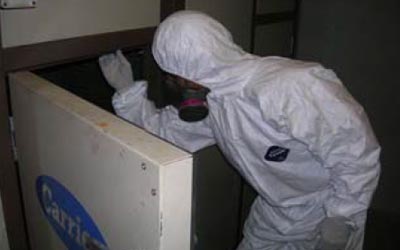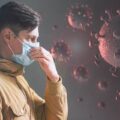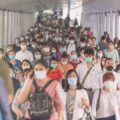Big Red was awarded the task of decontaminating the indoor environment affected by TB in an A Grade Commercial Building in Singapore.
Big Red’s Bio-Decontamination Technology provides rapid, safe and residue-free bio-decontamination for environment contaminated with TB. Ox Bio+ a new option for bio-decontamination of environment contaminated with Mycobacterium tuberculosis an effective against broad spectrum microorganisms.
The biological efficacy of Ox Bio+ has been repeatedly proven against bacterial endospores, bacteria, viruses including the H5N1 Avian influenza and other micro-organisms.
After the decontamination works, the AHU was treated with BR Shield to prevent the growth of broad spectrum micro organisms on the treated surface.
About TB – Mycobacterium
The organism that causes TB – Mycobacterium tuberculosis – is carried in airborne particles, called “droplet nuclei”, that can be generated when a person with pulmonary or laryngeal TB
sneezes, coughs, speaks or sings. For persons with extrapulmonary TB, droplet nuclei can be formed when aerosolizing procedures are done such as jet water picking of an abscess infected with M. tuberculosis. The droplet nuclei are so small (1-5 microns) that normal air currents keep them airborne and can spread them throughout a building.
TB infection occurs when a person inhales droplet nuclei and the M. tuberculosis bacilli settles in the alveoli of the lungs and spreads through the body in the lymphatic system and the bloodstream. Two to ten weeks after infection, the immune system of healthy persons responds and limits further multiplication and spread of the TB bacilli. At this point a person is
infected and most will have developed a positive PPD skin test reaction.
A small number of newly infected people (less than 1%) will rapidly progress to clinical illness after exposure. Another group of infected people (about 5%) will develop clinical illness within 2 years after exposure and overall, 10% of infected people will develop active disease sometime over their lifetime.
For people who are immunocompromised, such as those who have HIV infection, cancer or those who receive chemotherapy, radiation therapy or systemic steroids, the risk of progressing to active TB rapidly is greatly increased and the risk of developing the active disease rises to approximately 7-10% per year.




